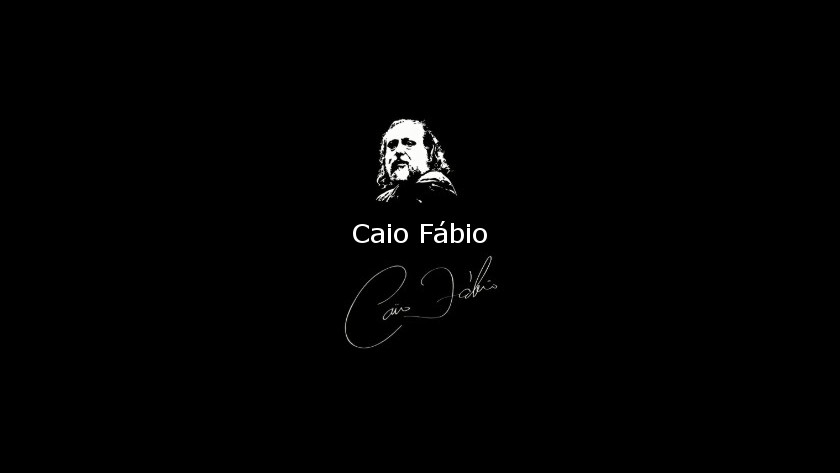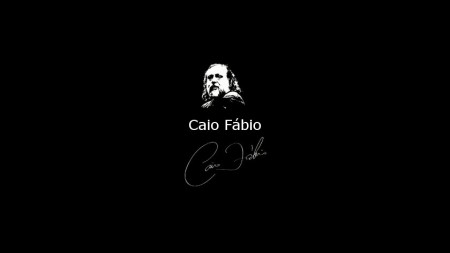
NEWS! The Way of Grace Is for All!
News! The Way of Grace Is for All!
Dear reader,
You may not know that this website, which started in 2003, now contains so many writings that it would take you years to read it through. Thousands of readers of Portuguese throughout the world have witnessed how these readings have been invaluable for them. In fact, many lives have been deeply changed by the simple but revolutionary message conveyed here.
This “In English” section, however, has just a handful of translated texts when compared to the huge amount of original writings in Portuguese. Besides — and most importantly—, we have felt that the readers of English still needed a better sequential view of the key principles and ideas approached and preached by Rev. Caio Fábio via this website.
To meet this need, we decided to translate a series of texts in a prearranged order and gradually post them in this section. Actually, each text is a chapter taken from a book* by Rev. Caio Fábio. Each text/chapter will be posted under the same title —“The Way of Grace Is for All”—, followed by a number (I, II, III etc) so you can go through the series in a logical sequence.
By the time you finish reading the last chapter, you may have realized it is about time you carried out a major overhaul on many of your outlooks on pivotal things in life. And, yes, they all have to do with how much God’s grace and Jesus’ teachings can benefit you in every way — individually and communally — if you are, in earnest, unbiased and unprejudiced against the simplicity of the Gospel of Jesus Christ as it is.
It does not matter if you hold a Ph.D., a Th.D., or if you know a lot or a little or nothing about it. Take a chance on it. Start now. We fervently hope that this message will make a big difference in your life.
Sincerely,
The Caiofabio.com Team
* All texts in this series are translated from the booklet “O Caminho da Graça para Todos”, by Rev. Caio Fábio D’Araújo Filho, compiled by Marcelo Quintela. Source: Writings from the website www.caiofabio.com.
Translated by F. R. Castelo Branco |2008-9
THE WAY OF GRACE IS FOR ALL
A Word from the Author
First of all, I wish to say, in Jesus’ name, that although I am a sinner amongst all sinners of the Earth, I cannot deny that God dwells in me, and from Him I receive the Light.
Let all my beloved brothers and sisters know that I have found and known our Lord Jesus Christ — God with us —, whom the Father constituted my Savior through His unique grace, now and forever.
The contents that follow are intended to explain our personal and communal experience of faith as well as to challenge distorted mindsets, in the hope of creating joy and strength in the heart of those who are inwardly convinced of the Good News in Christ.
Hoping you will enjoy the reading,
Caio Fábio
Glossary
The terms below are employed both on my website and in the latest books I wrote. The self-explainable reading that follows can make the communication process easier regarding the vocabulary used.
· Church (with a capital C) means what Jesus and the New Testament have defined as the Church: the Assembly of those who were called to the Faith. That is, our meeting with the Lord and with each other around Jesus’ name, which causes every Human Assembly, in faith, to be a Church-Assembly where Jesus promises to be, even if only two or three are re-united because they know they are united to Him.
· “Church” (between quotation marks) refers to the institutionalized expressions of the historically, socially, economically, politically and culturally self-defined as “church”. It has a hierarchy (the Clergy), a designation (the Denomination), a fixed geography (the Building) and members-partners. In other words, we come across the Church as we walk, whereas the “church” is either attended or identified by a sign.
· Christianism/Christianity is the historical expression of the Religion that professes Jesus as the Son of God although its institutionalization processes more frequently operate against the Interests of God’s Kingdom than in accordance with the Gospel.
· Catholicism is a derivative of Christianity that sees itself as the “Governmental Kingdom of God on the Earth” — all in quotation marks.
· Protestantism is the historical-Christian movement that almost made it… but it lost the pro-test, which is always something pro testing. So it ended up as a mere Re-formation.
· An Evangelical is a person who believes in the Gospel and the salvation through Jesus Christ according to the grace revealed in Him. For instance, Apostle Paul was a genuine Evangelical.
· An “evangelical” (between quotation marks) is a person whose faith in Jesus is mediated by the “Evangelical Church”, which is how Christians define themselves collectively even though they do not always trust or like one another. Despite that, they can only see themselves collectively while under this Big Umbrella that is pierced from below by the sharp tips of the smaller umbrellas used by each group to assure their own protection while gainsaying what they profess as devotion: the Gospel!
· A Christian (historically speaking) is a person living in a limbo between the Law and grace; suffering between his/her dread of God and the overwhelming love he/she has for Him.
· A disciple of Jesus is a person who acknowledges his/her own relativity, but, in spite of this, sees himself/herself —through the faith in God’s Grace (and faith is a gift of grace)— as someone who irreversibly belongs to Jesus. And he/she has learned that the journey in the Way is taken in the company of brothers and sisters who will always get their feet dirty along the journey. This is why they are nude as they wash one another’s feet, believing that the one who is clean through Jesus’ Word only needs to wash his/her feet.
· Freedom is the enablement, through Grace and Truth, for us to freely choose to be carried by the Spirit, which operates the good of God in the human being, leading him/her along the Narrow Road that, in faith, is followed —between the poles of Law and Libertinism— in the path of what is good, does goodness, is righteous and is called life according to Jesus.
· Sin is… I am. Each person should know what sin is. In fact, every individual knows what it is, especially when he/she is not morally taught about it. Only those instructed by Moral have sin lists. Those who live by Faith follow the righteousness of the Gospel in their consciences; that is why they know they are sin. Although they know it, they do not get neurotic. After all, God made Him who had no sin to be sin for us. Everyone who looks into his/her own heart knows the difference.
· Grace is every manifestation of God’s creating-redeeming love — whose ultimate manifestation was the Stumbling Block of the Cross —, which is always an undeserved favor, including the creation of the being, even if it is a being as I am.
Introduction
The Way of Grace Is for All
Therefore, brothers, (…) we have confidence to enter the
Let everyone know that grace is all and all is grace.
God’s grace in Christ is neither a mere doctrine, nor a theology, nor a biblical foundation to be intellectually learned, nor amassed theoretical knowledge. Such categories of thought about God’s grace translate nothing about the Gospel. We can even conceptualize God’s Unconditional Love, but this love can only be “learned” when tried, experienced.
Therefore, grace is a gift from God, received through faith (which is also grace, since it is a result of the Holy Spirit’s action in the human conscience), by the revelation of The Truth, who is Jesus Christ, the Lamb who was sacrificed in eternity — even before the world was made — for the guilt of the entire creation.
He manifested Himself in His incarnation, death, resurrection and ascension above all things, and He established that by His grace, Life is granted to us both here and in Eternity.
Therefore, let everyone know that grace is all and all is grace!
No steps toward spiritual maturity can be taken elsewhere than in the path of this grace.
By now it is obvious that the so-called “Christian” life that is lived outside the path of God’s grace only generates spiritual, psychological and existential disorders. It generates religion, but it does not set the peace of God in us. It generates behavioral changes, but it does not renew the inward man. It may generate new habits, but it does not ensure a new heart.
Paul is the great apostle of grace. 133 out of the 155 New Testament references to grace are his. Grace opens his epistles, grace closes them, and grace is the keynote from beginning to end. The word grace comes from Latin gratia, which is the translation of the Greek word charis, meaning graciousness, goodness, favor or kindness.
Paul employs charis to indicate a favor bestowed freely. He uses the word especially to point to what God did for us in Jesus Christ and through Him. We could say that grace is God’s love operating in our favor, freely offering us His forgiveness and acceptance, once and for all.
Where sin increased, grace increased all the more. (Romans 5.20)
(To be continued)

